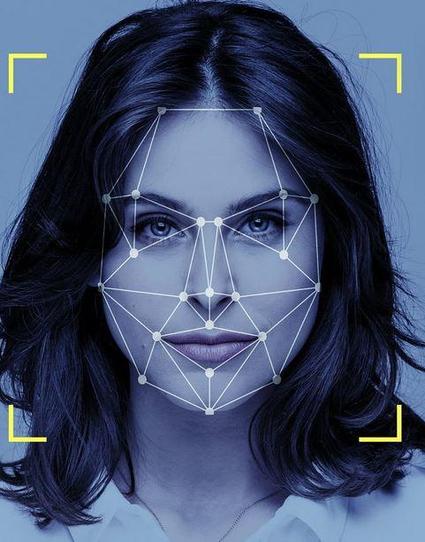You can't refuse to be scanned by ICE's facial recognition app, DHS document say
Jason Koebler, writing for 404 Media:
'Wednesday, as part of his ongoing war against Wikipedia because he does not like his page, Elon Musk launched Grokipedia, a fully AI-generated “encyclopedia” that serves no one and nothing other than the ego of the world’s richest man. As others have already pointed out, Grokipedia seeks to be a right wing, anti-woke Wikipedia competitor. But to even call it a Wikipedia competitor is to give the half-assed project too much credit. It is not a Wikipedia “competitor” at all. It is a fully robotic, heartless regurgitation machine that cynically and indiscriminately sucks up the work of humanity to serve the interests, protect the ego, amplify the viewpoints, and further enrich the world’s wealthiest man. It is a totem of what Wikipedia could and would become if you were to strip all the humans out and hand it over to a robot; in that sense, Grokipedia is a useful warning because of the constant pressure and attacks by AI slop purveyors to push AI-generated content into Wikipedia. And it is only getting attention, of course, because Elon Musk does represent an actual threat to Wikipedia through his political power, wealth, and obsession with the website, as well as the fact that he owns a huge social media platform.'
Musk is an extremely thin-skinned individual who tries to ruin Wikipedia by creating something that is partly antithetic to human science: to collaborate to achieve something that benefits others; Grokipedia is, of course, mostly AI slop that seemingly benefits its owner, a person who doesn't care about what the product contains, as long as it doesn't oppose himself nor his companies; doesn't this sound like a fair basic tenet of slavery?
#ElonMusk #grokipedia #Wikipedia #science #engineering #404Media #JasonKoebler
Chimps Are Capable of Human-Like Rational Thought, Breakthrough Study Finds

Chimps Are Capable of Human-Like Rational Thought, Breakthrough Study Finds - Ibbit
🌘Subscribe [https://www.404media.co/signup/] to 404 Media to get The Abstract [https://www.404media.co/tag/the-abstract/], our newsletter about the most exciting and mind-boggling science news and studies of the week. Chimps Are Capable of Human-Like Rational Thought, Breakthrough Study Finds [https://www.404media.co/content/images/2025/10/image1-2.jpg] Chimpanzees revise their beliefs if they encounter new information, a hallmark of rationality that was once assumed to be unique to humans, according to a study published on Thursday [http://www.science.org/doi/10.1126/science.aeb7565?ref=404media.co] in Science. Researchers working with chimpanzees at the Ngamba Island Chimpanzee Sanctuary in Uganda probed how the primates judged evidence using treats inside boxes, such as a “weak” clue—for example, the sound of a treat inside a shaken box—and a “strong” clue, such as a direct line of sight to the treat. The chimpanzees were able to rationally evaluate forms of evidence and to change their existing beliefs if presented with more compelling clues. The results reveal that non-human animals can exhibit key aspects of rationality, some of which had never been directly tested before, which shed new light on the evolution of rational thought and critical thinking in humans and other intelligent animals. “Rationality has been linked to this ability to think about evidence and revise your beliefs in light of evidence,” said co-author Jan Engelmann, associate professor at the department of psychology at the University of California, Berkeley, in a call with 404 Media. “That’s the real big picture perspective of this study.” While it’s impossible to directly experience the perspective of a chimpanzee, Engelmann and his colleagues designed five controlled experiments for groups of anywhere from 15 to 23 chimpanzee participants. In the first and second experiments, the chimps received a weak clue and a strong clue for a food reward in a box. The chimpanzees consistently made their choices based on the stronger evidence, regardless of the sequence in which the clues were presented. In the third experiment, the chimps were shown an empty box in addition to the strong and weak clues. After this presentation, the box with the strong evidence was removed. In this experiment, the chimpanzees still largely chose the weak clue over the empty box. In the fourth experiment, chimpanzees were given a second “redundant” weak clue—for instance, the experimenter would shake a box twice. Then, they were given a new type of clue, like a second piece of food being dropped into a box in front of them. They were significantly more likely to change their beliefs if the clue provided fresh information, demonstrating an ability to distinguish between redundant and genuinely new evidence. Finally, in the fifth experiment, the chimpanzees were presented with a so-called “defeater” that undermined the strong clue, such as a direct line of sight to a picture of food inside the box, or a shaken box containing a stone, not a real treat. The chimps were significantly more likely to revise their choice about the location of the food in the defeater experiments than in experiments with no defeater. This experiment showcased an ability to judge that evidence that initially seems strong can be weakened with new information. “The most surprising result was, for sure, experiment five,” Engelmann said. “No one really believed that they would do it, for many different reasons.” For one thing, he said, the methodology of the fifth experiment demanded a lot of attention and cognitive work from the chimpanzees, which they successfully performed. The result also challenges the assumption that complex language is required to update beliefs with new information. Despite lacking this linguistic ability, chimpanzees are somehow able to flexibly assign strength to different pieces of evidence. Speaking from the perspective of the chimps, Engelmann outlined the responses to experiment five as: “I used to believe food was in there because I heard it in there, but now you showed me that there was a stone in there, so this defeats my evidence. Now I have to give up that belief.” “Even using language, it takes me ten seconds to explain it,” he continued. “The question is, how do they do it? It’s one of the trickiest questions, but also one of the most interesting ones. To put it succinctly, how to think without words?” To hone in on that mystery, Engelmann and his colleagues are currently repeating the experiment with different primates, including capuchins, baboons, rhesus macaques, and human toddlers and children. Eventually, similar experiments could be applied to other intelligent species, such as corvids or octopuses, which may yield new insights about the abundance and variability of rationality in non-human species. “I think the really interesting ramification for human rationality is that so many people often think that only humans can reflect on evidence,” Engelmann said. “But our results obviously show that this is not necessarily the case. So the question is, what’s special about human rationality then?” Engelmann and his colleagues hypothesize that humans differ in the social dimensions of our rational thought; we are able to collectively evaluate evidence not only with our contemporaries, but by consulting the work of thinkers who may have lived thousands of years ago. Of course, humans also often refuse to update beliefs in light of new evidence, which is known as “belief entrenchment” or “belief perseveration” (many such cases). These complicated nuances add to the challenge of unraveling the evolutionary underpinnings of rationality. That said, one thing is clear: many non-human animals exist somewhere on the gradient of rational thought. In light of the recent passing of Jane Goodall, the famed primatologist who popularized the incredible capacities of chimpanzees, the new study carries on a tradition of showing that these primates, our closest living relatives, share some degree of our ability to think and act in rational ways. Goodall “was the first Western scientist to observe tool use in chimpanzees and really change our beliefs about what makes humans unique,” Engelmann said. “We’re definitely adding to this puzzle by showing that rationality, which has so long been considered unique to humans, is at least in some forms present in non-human animals.” 🌘Subscribe [https://www.404media.co/signup/] to 404 Media to get The Abstract [https://www.404media.co/tag/the-abstract/], our newsletter about the most exciting and mind-boggling science news and studies of the week. — From 404 Media [https://www.404media.co/] via this RSS feed [https://www.404media.co/rss]
404 Media has accumulated multiple user captured videos showing that ICE and Customs and Border Protection (CBP) are actively using smartphone facial recognition technology in the field.
It is not clear which specific app the officers are using, but it is believed to be an app called Mobile Fortify.
CBP emails indicate “The Mobile Fortify App empowers users with real-time biometric identity verification capabilities utilizing contactless fingerprints and facial images captured by the camera".
404 Media reviewed Mobile Fortify documentation which indicates they use a bank of 200 million images, and source data from the State Department, CBP, the FBI, and states. https://www.404media.co/ice-and-cbp-agents-are-scanning-peoples-faces-on-the-street-to-verify-citizenship/ #ICE #CBP #FacialRecognition #DHS #MobileFortify #404Media #Immigration #SmartPhone
Haven't listened to this podcast before, but I did today for the whole #Grokipedia garbage that's going on. Didn't mind that part of the show, but their later discussion regarding the #Windows10 support ending and the #Linux desktop seemed pretty outdated and not particularly well informed. I don't want to do a book report on it, but it left me feeling a little disappointed in #404Media.
ICE and CBP Agents Are Scanning Faces on the Street to Verify Citizenship
The videos show how Meta has built an entire supply chain for dangerous, privacy violating content on the internet. It sells glasses that allow people to surreptitiously film others in public and operates a social network where inflammatory, outrageous content is rewarded and monetized, and where Instagram often only moderates violating content after journalists reach out for comment.
https://www.404media.co/metas-ray-ban-glasses-users-film-and-harass-massage-parlor-workers/
#404media is complaining about the wrong thing when it comes to the #meta #rayban -> the white led serves meta's interests, and is a brutal reminder that the "owner" literally does not own his glasses.
Yes people don't like to be recorded by cameras. Hint with cameras being tiny and basically passive devices the only thing that can protect you from being recorded is regulations and laws.
Koniec z prywatnością? Modyfikacja za 60 dolarów pozwala wyłączyć diodę nagrywania w okularach Meta
Kluczowa funkcja chroniąca prywatność w inteligentnych okularach Meta Ray-Ban, czyli jasna dioda LED informująca o nagrywaniu, może zostać trwale wyłączona za 60 dolarów.
Jak donoszą dziennikarze z serwisu 404 Media, na rynku działa już hobbysta, który oferuje fizyczną modyfikację sprzętu. Serwis zakupił i przetestował zmodyfikowaną parę, potwierdzając, że okulary nagrywają obraz i dźwięk bez żadnego wizualnego ostrzeżenia.
Meta zaprojektowała swoje okulary tak, by biała dioda LED świeciła się za każdym razem, gdy użytkownik robi zdjęcie lub nagrywa wideo. Miało to zniechęcać do potajemnego filmowania i ostrzegać osoby postronne. Co więcej, oprogramowanie miało wykrywać próby zasłonięcia diody (np. taśmą) i przerywać nagrywanie. Jak się jednak okazało, te zabezpieczenia są bezużyteczne wobec prostej, fizycznej ingerencji.
Dziennikarze 404 Media skontaktowali się z hobbystą, który reklamuje swoje usługi na YouTube. Mężczyzna, przedstawiający się jako Bong Kim, przyznał, że „w zasadzie po prostu rozwierca diodę LED”. Serwis zakupił od niego parę okularów i potwierdził, że modyfikacja jest wykonana na tyle dobrze, że sprzęt wygląda jak nowy. Poza zerwaną plombą na pudełku, nic nie wskazywało na ingerencję. Okulary normalnie łączą się z aplikacją Meta AI, która nadal wyświetla komunikaty o „poszanowaniu prywatności” i „informowaniu diodą LED”, mimo że ta już nie działa.
Implikacje tej modyfikacji są poważne. Użytkownicy okularów Meta już wcześniej byli przyłapywani na nadużyciach – 404 Media przytacza przykład studentów z San Francisco, którzy ostrzegali przed mężczyzną filmującym kobiety na kampusie. Teraz jednak staje się niemożliwe, by mieć pewność, czy osoba nosząca Ray-Bany właśnie nas nie nagrywa. Popyt na taką usługę jest duży, a dyskusje na Reddicie pokazują, że motywacje są różne: od chęci nagrywania naturalnie zachowujących się ludzi, po prośby o pomoc w „szpiegowaniu dziewczyn”.
Rzecznik Meta w komentarzu dla 404 Media stwierdził, że „majstrowanie przy diodzie LED jest naruszeniem warunków korzystania z usługi” oraz że „dioda jest tam z jakiegoś powodu”. Rzecznik podkreślił, że firma wprowadziła ulepszenia, takie jak większa dioda i system wykrywania sabotażu. Jak udowodnił test 404 Media, zabezpieczenia te nie powstrzymały modyfikacji polegającej na fizycznym usunięciu źródła światła.
Meta nie boi się bańki AI. Zuckerberg gotów jest „zmarnować” setki miliardów dolarów
#404Media #Bezpieczeństwo #diodaLED #haker #inteligentneOkulary #IoT #MetaRayBan #modyfikacjaSprzętu #nagrywanie #news #prywatność
Women Dating Safety App Tea Delisted from Apple App Store

Women Dating Safety App Tea Delisted from Apple App Store - Ibbit
Women Dating Safety App Tea Delisted from Apple App Store [https://www.404media.co/content/images/2025/10/tea-website-1.png] Tea, the women’s safety app which went viral earlier this year before facing multiple data breaches, has been removed from the Apple App Store. “This app is currently not available in your country or region,” a message on the Apple App Store currently says when trying to visit a link to the app [https://apps.apple.com/us/app/tea-dating-advice/id6444453051?ref=404media.co]. It is unclear whether the app has only been removed temporarily or permanently, or whether Apple banned the app or Tea removed it itself. Neither company immediately responded to a request for comment. Randy Nelson, head of insights and media resources at app intelligence company Appfigures, first alerted 404 Media to the app’s removal. After launching a number of years ago, Tea skyrocketed to the top of the App Store this summer. The idea was for women to come together to share information and red flags about their dates. Tea users can “find verified green flag men,” “run background checks,” and “identify potential catfish,” according to Tea’s website. Crucially, the app said it verified that every user was a woman by asking them to upload a selfie. 💡Do you know anything else about this removal? Do you work at Tea or did you used to? I would love to hear from you. Using a non-work device, you can message me securely on Signal at joseph.404 or send me an email at joseph@404media.co [joseph@404media.co]. In the wake of its new found attention, members of the notorious troll and harassment forum 4chan targeted the service, and found an exposed database [https://www.404media.co/women-dating-safety-app-tea-breached-users-ids-posted-to-4chan/] containing Tea users’ driver licenses and selfies. Days later, 404 Media revealed [https://www.404media.co/a-second-tea-breach-reveals-users-dms-about-abortions-and-cheating/] a second data breach at Tea impacted users’ direct messages, including those discussing abortions and cheating. Tea turned off its direct messaging [https://www.404media.co/tea-app-turns-off-dms-after-exposing-messages-about-abortions-cheating/] functionality altogether after that breach, and a Tea user filed a class action lawsuit [https://www.404media.co/tea-user-files-class-action-after-womens-safety-app-exposes-data/] against the app. Despite those data breaches, Tea continued to grow its userbase, Tea previously told 404 Media in a statement. 404 Media subsequently published an in-depth investigation into Tea [https://www.404media.co/tea-user-files-class-action-after-womens-safety-app-exposes-data/] and its CEO and founder Sean Cook, revealing how the app tried to essentially hijack the Are We Dating the Same Guy community, an ecosystem of Facebook pages that are credited with keeping women safe. Tea paid influencers to undermine Are We Dating the Same Guy and created competing Facebook pages with nearly identical names. That investigation also discovered a third security breach which revealed the personal data of women who were paid to promote the app as part of an affiliate program. The app is still available on the Google Play Store [https://play.google.com/store/apps/details?id=com.tea.tea&hl=en_US&ref=404media.co]. A number of other copycat apps that include “tea” in their name and advertise similar features are still available on the Apple App Store as well. As of Wednesday Tea is still posting to its social media accounts, including its Instagram. The most recent post from around 13 hours ago describes Tea as “The first ever girls-only space that truly amplifies women’s voices and gives them an anonymous space to share their experiences, find comfort, and get the info they need on the man they’re talking to, in the name of DATING SAFETY💜” One of the replies to that video simply says “App is gone.” — From 404 Media [https://www.404media.co/] via this RSS feed [https://www.404media.co/rss]







